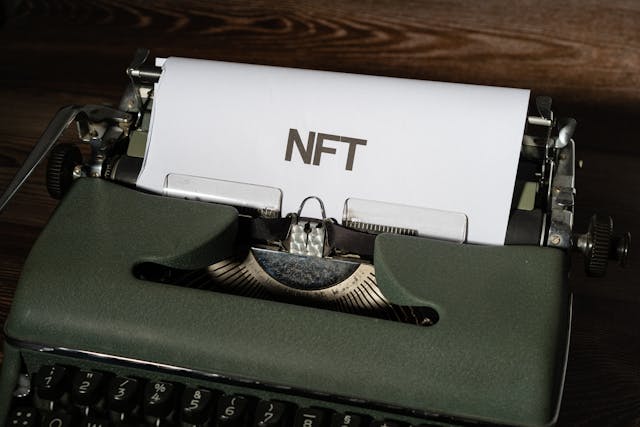In the course of this article, we will cover the role of Blockchain in supply chain management.
What Role Does Blockchain Play in Supply Chain Management?
Blockchain technology has introduced transformative changes in supply chain management. By creating a decentralized and transparent ledger, it records every transaction securely and efficiently. This transparency helps businesses verify each step in the supply chain, from raw materials to the final product reaching consumers.
A blockchain in the supply chain enables real-time tracking of goods. Every stakeholder, from manufacturers to end consumers, can trace products’ origin and journey. This traceability reduces fraud, lowers risks, and ensures compliance with regulatory standards.
For example, consider food safety. Using blockchain, suppliers can quickly identify contaminated sources in cases of foodborne illness, allowing for swift recalls. This technology’s role in supply chain management is invaluable, especially in industries where authenticity and accountability are critical.
Benefits of Blockchain in Supply Chain Management
Blockchain’s benefits to supply chain management go beyond transparency and traceability. Here are some key advantages:
- Enhanced Security: Each transaction on the blockchain is encrypted, making it tamper-resistant. This strengthens the integrity of data and prevents unauthorized alterations.
- Reduced Costs: Blockchain minimizes the need for intermediaries by allowing direct peer-to-peer transactions. This cutback on intermediaries saves companies significant expenses.
- Improved Efficiency: Smart contracts—self-executing contracts based on blockchain—automate routine tasks. This automation speeds up processes like payment approvals and customs clearances, reducing bottlenecks.
- Real-Time Insights: With blockchain, stakeholders can view the entire chain in real time, enabling better inventory management and demand forecasting.
What Is Supply Chain Management in Cryptocurrency?
Supply chain management in cryptocurrency relies on blockchain to monitor and secure transactions in a decentralized network. While not a traditional supply chain, cryptocurrency supply chains also need secure and traceable systems to manage digital assets.
Cryptocurrency transactions often utilize blockchain to maintain data integrity and security. The same principles apply in the physical supply chain sector, such as traceability and transparency, enabling efficiency across the board.
For example, in the energy sector, blockchain technology is being used to track renewable energy certificates. Each certificate represents a certain amount of energy from renewable sources. Blockchain records each transaction, ensuring authenticity and preventing double spending.
Challenges of Blockchain in Supply Chain Management
While the role of blockchain in supply chain management offers clear benefits, there are also challenges to its implementation.
- High Initial Costs: Setting up a blockchain system can be expensive, especially for smaller companies. The hardware, software, and training required for blockchain adoption require a significant initial investment.
- Complex Integration: Integrating blockchain with existing systems requires expertise. Companies may face technical challenges and compatibility issues, delaying the adoption process.
- Data Privacy Concerns: While blockchain is transparent, not all supply chain participants want to share their data openly. Balancing transparency with privacy is crucial, especially when handling sensitive information.
- Regulatory Uncertainty: Blockchain regulations vary by country, creating compliance challenges for global supply chains. This uncertainty can limit blockchain’s adoption until regulations stabilize.
Future Trends in Blockchain Supply Chains
As blockchain technology advances, we can expect new developments that enhance its impact on supply chains. Some emerging trends include:
- Integration with IoT: The Internet of Things (IoT) can connect physical products with digital records on the blockchain, allowing real-time tracking and automation.
- AI and Blockchain: Artificial intelligence can analyze blockchain data to predict demand, optimize routes, and prevent potential disruptions.
- Sustainability Tracking: Blockchain can track carbon emissions, allowing companies to monitor and reduce their environmental impact.
FAQs
1. Can small businesses afford blockchain for supply chain management?
Yes, small businesses can adopt blockchain through scalable options. Many providers offer tailored blockchain solutions to match company budgets and needs.
2. How secure is blockchain in supply chain management?
Blockchain is highly secure due to encryption and decentralized control. It is resistant to tampering, ensuring data integrity across all transactions.
3. Does blockchain reduce supply chain costs?
Yes, blockchain reduces costs by eliminating intermediaries and streamlining transactions. Automation through smart contracts further cuts operational expenses.
4. What industries benefit most from blockchain in supply chains?
Industries with complex supply chains like pharmaceuticals, food, and luxury goods benefit significantly from blockchain. Its traceability ensures product safety and authenticity.
Conclusion
Blockchain is reshaping supply chain management by bringing transparency, efficiency, and security. While challenges exist, the benefits of blockchain outweigh the initial hurdles. For companies seeking to streamline operations and build trust with consumers, blockchain offers a reliable solution. By implementing blockchain, businesses can create supply chains that are not only efficient but also transparent and secure.








